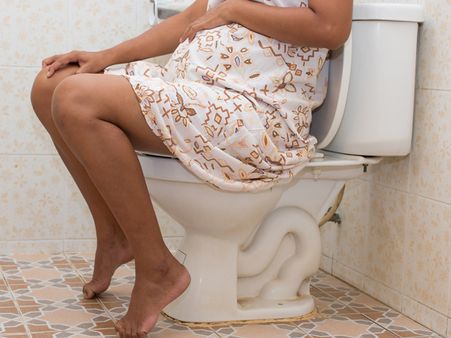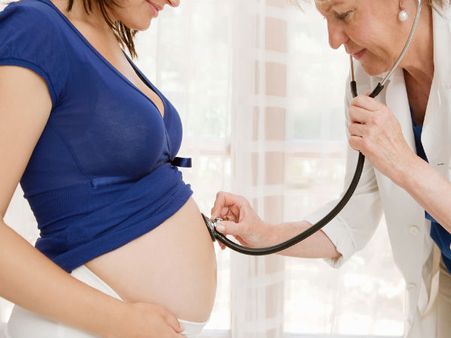Just In
- 13 hrs ago

- 13 hrs ago

- 16 hrs ago

- 17 hrs ago

Don't Miss
- Sports
 Who Won Yesterday's IPL Match 41? SRH vs RCB, IPL 2024 on April 25: Royal Challengers Bangalore End Losing Streak
Who Won Yesterday's IPL Match 41? SRH vs RCB, IPL 2024 on April 25: Royal Challengers Bangalore End Losing Streak - Finance
 Bajaj Group Stock Declares Rs. 60/Share Dividend: Buy Ahead of Record Date On 28 June?
Bajaj Group Stock Declares Rs. 60/Share Dividend: Buy Ahead of Record Date On 28 June? - Movies
 TRP Report Week 16: Anupamaa, Jhanak BEAT Yeh Rishta Kya Kehlata Hai, Ghum Hai. Top 10 Shows List
TRP Report Week 16: Anupamaa, Jhanak BEAT Yeh Rishta Kya Kehlata Hai, Ghum Hai. Top 10 Shows List - News
 MEA Dismisses US Human Rights Report On Manipur As 'Biased And Misinformed'
MEA Dismisses US Human Rights Report On Manipur As 'Biased And Misinformed' - Automobiles
 Royal Enfield Unveils Revolutionary Rentals & Tours Service: Check Out All Details Here
Royal Enfield Unveils Revolutionary Rentals & Tours Service: Check Out All Details Here - Technology
 Elon Musk’s X Is Launching a TV App Similar to YouTube for Watching Videos
Elon Musk’s X Is Launching a TV App Similar to YouTube for Watching Videos - Education
 AICTE introduces career portal for 3 million students, offering fully-sponsored trip to Silicon Valley
AICTE introduces career portal for 3 million students, offering fully-sponsored trip to Silicon Valley - Travel
 Escape to Kalimpong, Gangtok, and Darjeeling with IRCTC's Tour Package; Check Itinerary
Escape to Kalimpong, Gangtok, and Darjeeling with IRCTC's Tour Package; Check Itinerary
What Causes Constipation During Pregnancy And How Can It Be Treated?
Constipation is a common problem during pregnancy. Almost half of all pregnant women will experience constipation and other bowel problems at some point [1]. Constipation is characterised by infrequent or difficult bowel movements and pregnant women usually experience it for the first time in pregnancy or may experience worsening of constipation if they had previously suffered from it [2].

What Causes Constipation During Pregnancy?
The causes of constipation during pregnancy depend on the stages of pregnancy. The common causes of constipation during pregnancy include:
- Hormones - Changes in hormone levels cause constipation during pregnancy. During pregnancy, a rise in the progesterone hormone causes your body' muscles to relax, including your intestinal muscles. This causes the intestines to make the stool move slowly through your colon and this slow movement causes the colon to absorb too much water, making the stool hard, dry and difficult to pass [3].
- Pressure on the uterus - In the later stage of pregnancy, the growing uterus can put pressure on the bowel, making it harder to move the stool through the intestine [4].
- Prenatal vitamins - Prenatal vitamins are high in iron, an important mineral that is required primarily to prevent iron deficiency anaemia and help build up extra blood your body and growing foetus needs during pregnancy and after delivery [5].

Symptoms Of Constipation During Pregnancy
- Infrequent bowel movements
- Passing hard, dry stools along with pain and straining
- Incomplete bowel emptying
- Bowel obstruction or blockage
- Fewer than three bowel movements per week [6]


How To Prevent And Treat Constipation?
Making a few lifestyle changes may help in relieving constipation and also prevent it from re-occurring[7] [8].
- Eat more fibre-rich foods - The intake of dietary fibre will help in treating and preventing constipation. Fibre will help soften the stool and make it easier to pass through the intestine. Eat plenty of fresh fruits, vegetables, beans, whole-grains, lentils, prunes and bran cereals. Pregnant women should try to consume 25 to 30 g of dietary fibre per day.
- Drink a lot of water - It's important for pregnant women to keep their body hydrated during pregnancy. Drinking water will help make your bowel movements more frequent and easier to pass. Pregnant women should drink 10 to 12 cups of water per day.
- Physical activity - Exercising regularly during pregnancy will help keep your bowel movements regular. You can try moderate exercises like walking, swimming or practicing yoga. However, talk to your doctor about what exercises are safe for you and your baby.
- Probiotics - Probiotics can change the gut flora and may improve bowel function. A study showed that consuming 300 g of probiotic yogurt per day can help improve the symptoms of constipation during pregnancy [9].
- Medications - Pregnant women who are taking prenatal vitamins that are high in iron, doctors may recommend them vitamins that have low doses of iron.
If these treatments are ineffective, laxatives are the second line of therapy. However, there are insufficient data on the use and safety of laxatives in pregnancy.


When To See A Doctor
Pregnant women should consult their doctor before taking any medication and if they experience constipation that lasts longer than one to two weeks, nausea and vomiting, stomach pain and bleeding from the rectum.


Common FAQs
Q. Can constipation hurt the baby during pregnancy?
A. No, constipation doesn't affect the baby. It is only problematic for a pregnant woman.
Q. Does constipation cause miscarriage?
A. No, constipation doesn't cause miscarriage.
Q. What can you take for constipation when pregnant?
A. Eat more fibre-rich foods, drink plenty of water, regular physical activity and eat probiotic yogurt for relieving constipation during pregnancy.
-
 wellnessIs It Safe To Take Laxatives Everyday? Are Laxatives Healthy For Weight Loss?
wellnessIs It Safe To Take Laxatives Everyday? Are Laxatives Healthy For Weight Loss? -
 nutrition5 Reasons To Drink Aloe Vera Juice Every Day; Recipe And How To Extract Aloe Vera Gel?
nutrition5 Reasons To Drink Aloe Vera Juice Every Day; Recipe And How To Extract Aloe Vera Gel? -
 disorders cureInternational Stress Awareness Day: What Is Stress Constipation? How To Manage It
disorders cureInternational Stress Awareness Day: What Is Stress Constipation? How To Manage It -
 wellnessDelhi Hospital Successfully Treats Chronic Constipation Using Biofeedback Therapy
wellnessDelhi Hospital Successfully Treats Chronic Constipation Using Biofeedback Therapy -
 wellness10 Things That Happen To Your Body And Mind When You Don't Eat Enough Food
wellness10 Things That Happen To Your Body And Mind When You Don't Eat Enough Food -
 nutrition17 Amazing Health Benefits Of Rose Apple (Java Apple)
nutrition17 Amazing Health Benefits Of Rose Apple (Java Apple) -
 wellness7 Herbal Teas That Can Help Ease Constipation
wellness7 Herbal Teas That Can Help Ease Constipation -
 disorders cureWhat Causes Constipation During Chemotherapy? Everything You Need To Know
disorders cureWhat Causes Constipation During Chemotherapy? Everything You Need To Know -
 wellnessEat These Foods To Get Rid Of Constipation Easily
wellnessEat These Foods To Get Rid Of Constipation Easily -
 nutritionIs Orange Juice Good For Constipation? Everything You Need To Know
nutritionIs Orange Juice Good For Constipation? Everything You Need To Know -
 wellness11 Best Juices For Colon Cleansing
wellness11 Best Juices For Colon Cleansing -
 wellnessTop 10 Vegetables To Relieve Constipation
wellnessTop 10 Vegetables To Relieve Constipation


 Click it and Unblock the Notifications
Click it and Unblock the Notifications



